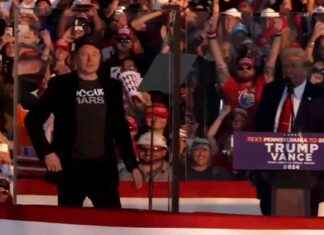June is global Pride Month. Several Arab countries have launched campaigns to support the LGBTQ community. The crackdown was led by Lebanon, where the Interior Minister Bassam Mawlawi sent a letter to Lebanese security officers a week ago requesting that they stop any events that promote homosexuality.
The letter, which was titled “very urgent”, stated that police and security forces needed to “take the necessary steps to ban celebrations, meetings, or gatherings that promote homosexuality in Lebanon” and report back the results.
Helem (Arabic For Dream), an NGO supporting LGBTQ people in North Africa and Southwest Asia, stated in a statement that the minister considered LGBTQ events to be the greatest threat to national security.
The organization stated that the deliberate act of inciting moral and sexual panic and targeting LGBTQ people is an old and superficial tactic used by failed regimes to distract attention from economic and political catastrophes.
Although Lebanon is generally considered to be more LGBTQ-friendly than many Arab countries, Helem stated that it cancelled a planned demonstration for Sunday out of concern for the safety and well-being of those who were due to participate.
Some neighbouring countries have focused on less obvious manifestations of LGBTQ support.
Kuwait’s Ministry of Commerce and Industry posted a message on social media last Wednesday urging citizens to inform the government of any products with a rainbow flag so officials can remove them.
The ministry created a guideline that distinguishes between the “normal rainbow” (or LGBTQ rainbow) to avoid confusion. It stated that the “normal” rainbow contains seven colors while the one that violates public morals has six.
Kuwaitis began quickly tweeting photos from the government account of rainbow-colored products, even buildings, despite the ministry’s attempts to clarify their request. They asked if they were violating “public morals”.
One user responded to the appeal by sending a photograph reporting that he used anti-bacterial hand soap. The ministry replied bluntly, “Not a violation.”
Twitter user stated that he did not agree with the ruling. “But thanks for your concern.”
kfw wllh yytw bwqtkm #shrk_fy_lrqb@ pic.twitter.com/dBzgl0nut6
Officials from Saudi Arabia launched an almost identical campaign in June.
The Ministry of Commerce shared a video (below), which showed officials seizing rainbow-colored toys, handbags, and accessories. They claimed they were carrying “symbols or connotations that encourage homosexuality, contradict nature, and encourage homosexuality.”
frqn @ tnfdh JwltllmnfdhlltDbTtSdrttDmnrtDmnwwzw llshdhwdhWtnfy@ lsWwy@wtwqljztlmnshat Lmkhlf@. pic.twitter.com/XyeNvYmOvl
In early June, the Kuwaiti Foreign Ministry summoned U.S Embassy’s acting Charge d’affaires to discuss a tweet by the Embassy marking Pride Month. It included a quote of President Joe Biden as well as a rainbow flag.
Kuwait’s foreign ministry released a statement stating that the American diplomat was told by Kuwaiti officials that they should not publish “such tweets.”
Language could be an issue, as similar messages were posted by the U.S. embassies to Saudi Arabia, Bahrain, and the United Arab Emirates in English, but they did not draw any apparent scrutiny. The tweet sent by the American Embassy in Kuwait was written in English and Arabic. Kuwait’s Foreign Ministry issued a statement berating the U.S. Embassy in Arabic.
When asked about the Saudi Arabian crackdown on flag-adorned products, White House press secretary Karinejean-Pierre stated that she was unaware of the actions but pointed out that the U.S. government had worked “around the world to protect LGBTQI+ people from violence, abuse, discrimination and stigma and — and empower LGBTQI+ movements.
She stated that any “official concerns” were always raised by “governments, both principally [publicly]”, and she added that the Biden administration views “human rights as universal.”
In its 2020 report, the International Lesbian, Gay, Bsexual, Trans, and Intersex Association noted that Kuwait, Saudi Arabia, and Lebanon are among 69 countries that prohibit homosexual acts.
The report stated that Saudi Arabia was one of six UN member states in which the death penalty was legally prescribed for sexual acts that were consensual.
This report was contributed by Sean Conlon, CBS News.








